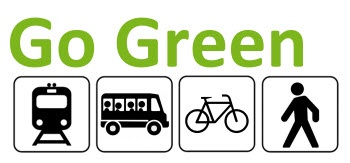A working committee at the University of Liechtenstein has been set up to look into ways of implementing corporate mobility management. As a result, the university is now contributing in many ways to alleviation of the current transport situation in the Principality. The European Union’s Commission for Sustainable Mobility has made a one-off grant of financial support for the university’s mobility project.
A working committee at the University of Liechtenstein has been set up to look into ways of implementing corporate mobility management. As a result, the university is now contributing in many ways to alleviation of the current transport situation in the Principality. The European Union’s Commission for Sustainable Mobility has made a one-off grant of financial support for the university’s mobility project.
Based on documentation of the commuting patterns of employees and students, measures have been taken, under the auspices of corporate mobility management, with a view to making transport more efficient and environmentally friendly. Several incentive schemes have been created to make it easier for people to switch from the use of a private car to buses, trains, cycling or walking. Mobility Days connected with major events like the Campus Talks will lend temporary relief to the university’s car parks, as green commuters will be rewarded with vouchers for the cafeteria.
Mobility Months as a motivation
Mobility Months, or MoMo, is a scheme for which students and employees can register, either singly or as a couple. It documents daily commuting journeys, and is based on a quite simple formula – the more kilometres you travel and more time you spend commuting on foot, by bus, in a shared car or by bicycle, the greater your chance of winning. A further opportunity of winning a prize is aimed at those who dispense with bus, rail and car altogether, relying solely on cycling or their own feet to get to the university.

At the final event of Mobility Months, the Mobility Working Committee organised a group hike through a sea of mist to the Alpspitz summit.
MoMo marks up 2024 cycling kilometres
As a result of the competition in the winter semester of 2014, MoMo was able to register a total of 2024 kilometres travelled by bicycle and 282 hours on public transport, divided amongst 85 commuters. A fair number of students and employees of the university make their way from the Liechtenstein Unterland, or lowlands, to Vaduz every day – some coming from as far afield as Feldkirch or Rankweil. Others come together at a later stage on the Schwarz-Strässle road, to get out of the traffic and cycle to the university in leisurely style. When they arrive on campus, there are showers, changing rooms, cycle stands and air pumps for their use.

Dr Georg Sele, President of the Liechtenstein Transport Club (VCL), chose the Mobility Months winners by lot.
Prizes presented by the Liechtenstein Transport Club
Dr Georg Sele, President of the Liechtenstein Transport Club (VCL), kindly attended the prizegiving ceremony this semester as a guest speaker. He came up with ample statistics to demonstrate the relevance of alternative transport approaches and corporate mobility management for the Principality of Liechtenstein. 50% of all commuter routes in this little country cover no more than 5 kilometres. If people were to travel the short commuting distance by bicycle rather than by car, it would result in a significant reduction of CO2 emissions and relieve traffic congestion in the rush hour. The VCL President chose the prizewinners by drawing lots, thanked the Working Committee for their efforts and urged his audience to carry on commuting in a green and sustainable way.
Further information about corporate mobility management at the University of Liechtenstein may be found at www.uni.li/mobilitaet.
